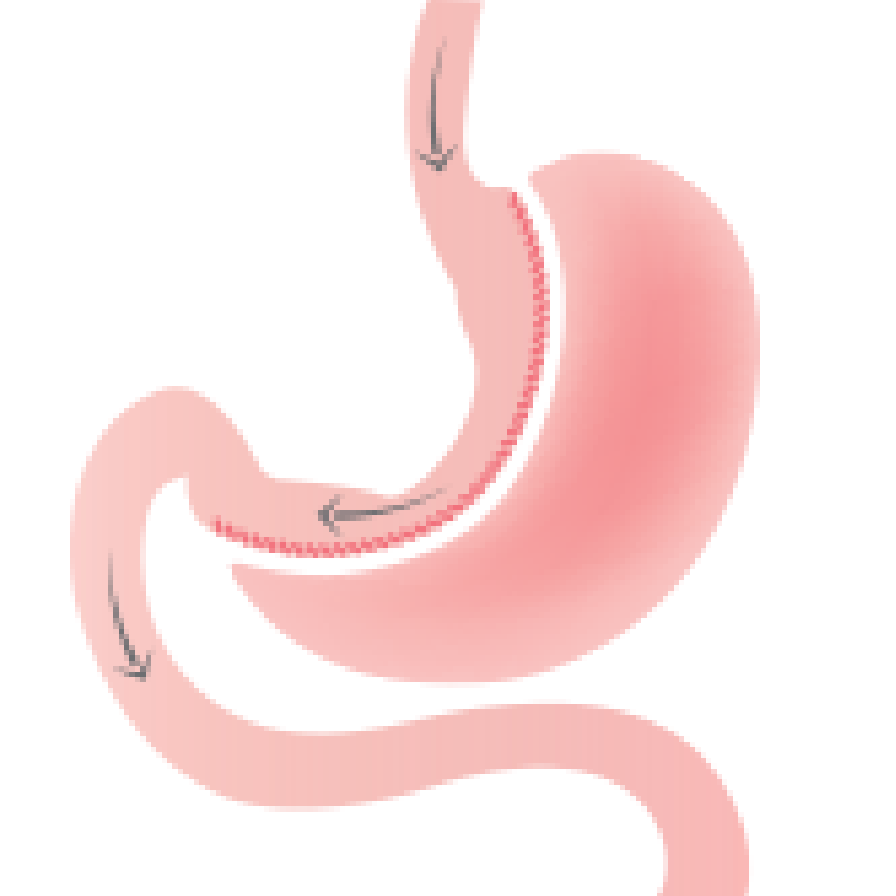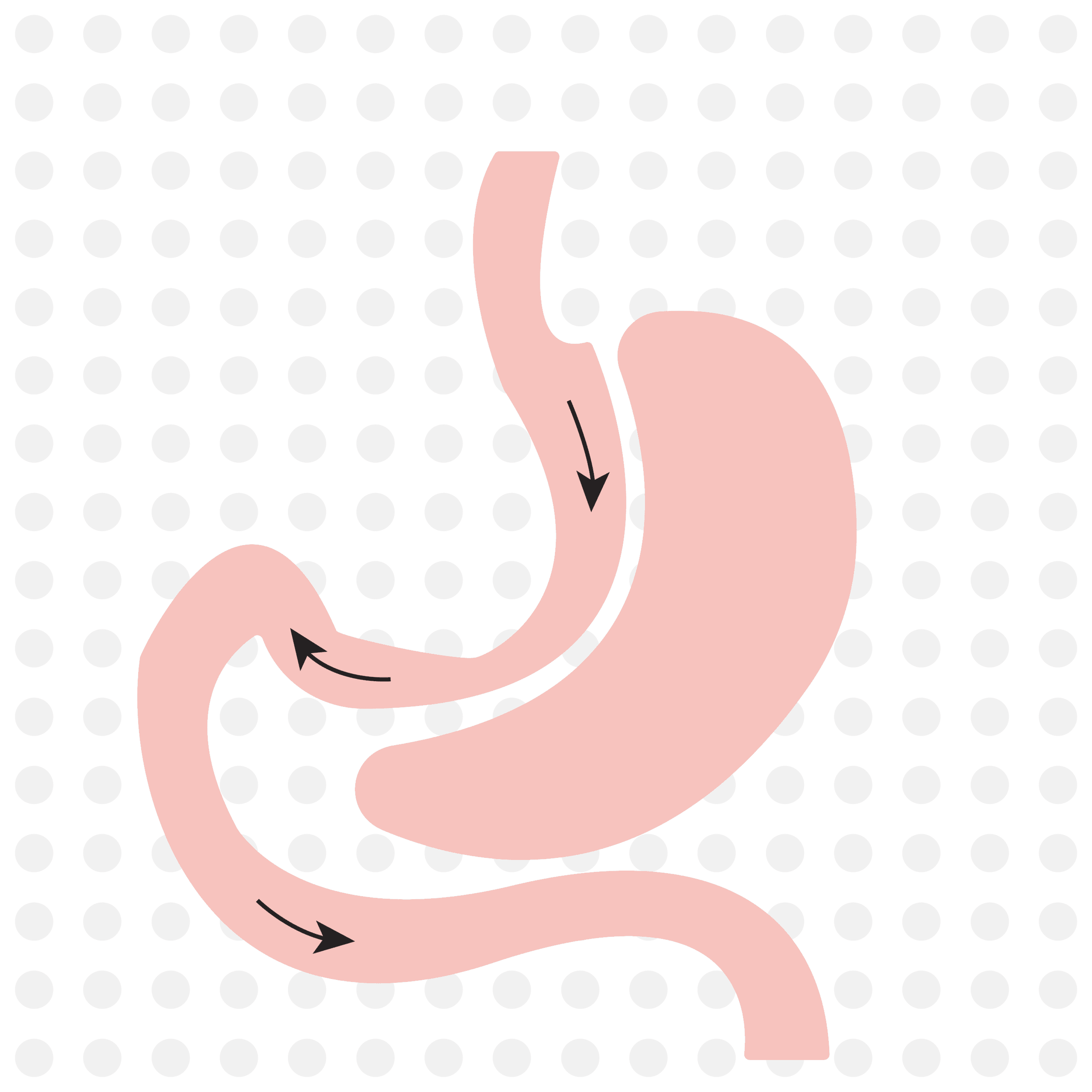
What is a Laparoscopic Sleeve Gastrectomy?
During a laparoscopic sleep gastrectomy (also known as vertical sleeve gastrectomy), a large portion of the stomach is removed. By creating a smaller stomach, food intake is restricted and patients with obesity can more easily lower their body weight. This is not the same procedure as a laparoscopic gastric bypass procedure. Unlike gastric bypass surgery, there is no bypass of the small intestines, so the likelihood of a nutritional deficiency is decreased. This procedure is done to help patients lose weight and achieve a healthier lifestyle.
- Must be 18 or older
- Body mass index (BMI) of 40+ or BMI of 35 with serious weight-related illness
Advantages
- Restricts the amount of food the stomach can hold
- Causes favorable changes in gut hormones that suppress hunger, reduce appetite, and improve satiety
- Induces rapid and significant weight loss similar to that of the Roux-en-Y gastric bypass with initial weight loss of 60 to 65 percent and typical maintenance of >50 percent
- Improves obesity-related conditions like high blood pressure and sleep apnea
- Laparoscopic techniques create smaller incisions



Recovery
- Directly after surgery, many patients experience a sore, dry, slightly pained throat.
- Patients are generally discharged from the hospital a day or two after surgery.
- You may experience some pain when you twist or turn your body. This is normal. Contact your doctor if the pain lasts longer than a month after surgery.
- Be sure to follow the diet recommended by your doctor to avoid weight regain
- Continually monitor your incision sites for irritation or pain. Mention any irregularities to your doctor.
Frequently Asked Questions
[inject-faq cat=’Bariatric Surgery’ sub_cat=’Laparoscopic Sleeve Gastrectomy’]
I am raw html block.
Click edit button to change this html




